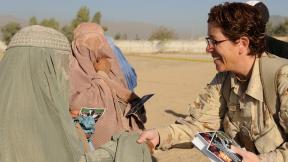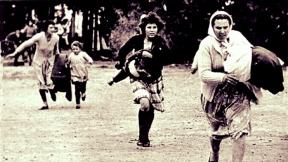
At this time of crisis, the Muslim community is in a state of emotional trauma. Our children are afraid and anxious, our new reverts confused and stressed, our parents fearful and distressed, the mood in general is traumatic. There is an emotional overload and a sense of insecurity. We may be going about our daily lives, but we are profoundly sad. This is a volatile situation that may contribute to emotional and psychological breakdown.
To address all these concerns, Islamic Social Services Association USA and Canada (ISSA) has developed the enclosed guide for Muslim communities, Health care professionals, teachers, Mental Health professionals, Social Workers and Imams so they can respond to the critical needs of the community in an organized, professional, and consistent manner.
To implement this program, the resources needed are:
1. Cooperation of leadership
2. Recruitment of professionals; Muslim counselors, psychologists, psychiatrists and Social Workers and Imams to volunteer their time.
3. Space, preferably an Islamic Center, Mosque or university
4. Security
5. Take home written information
6. Refreshments
7. Advertising of Event
8. Information for Counselors provided by ISSA.
How to do it? Divide the community along focus groups, such as:
1. Children from grades 2-5
2. Children from grades 5-10
3. Children from grades 11-university
4. Parents (divide by gender if necessary)
5. New Muslims (up to 5 years)
6. Community Leaders and Workers
7. Sisters only
8. DURATION varies ACCORDING TO THE NEEDS OF YOUR COMMUNITY, factors that will weigh in are How large is your community, How affected it is in terms of loosing loved ones, and degree of backlash. ISSA recommends every 3 weeks for most vulnerable groups for example New Reverts, Sisters and Children.
For every session, counselors must meet prior to the seminar to discuss strategies and responses.
Children from Grades 2-5:
There will be two groups: one will be for those children attending full time Islamic School and the other group will be for those children attending public schools. The venue may therefore differ.
Full time Islamic School Students:
-Sessions may take place in the Islamic School with cooperation and at the discretion of administration.
-Resource people available should be trained counselors working with children; psychologists preferably child psychologists and Social Workers.
-Staff members must be encouraged to attend.
If you have non-Muslim staff, please hold a separate session with them to explain the Islamic position and encourage them to ask questions frankly without fear of offense.
Public School Students:
-Send out letters to division heads, voicing concern for Muslim children. Offer speakers and to speak to students if they request information on Islam. Thank them for their cooperation.
-Hold a session for Muslim children going to public schools at the venue of your choice. Encourage discussion and questions.
Closely monitor responses.
Do not let one or two individuals manipulate the discussion. Have Imams or scholars present Islamic perspective.
Do not discourage questions such as, "Why did Allah let this happen?", "How can Muslims be evil?", "Are the Americans being punished?".
-The emphasis should be on the following:
1. Islam does not condone violence.
- Exemplify with stories from the Seerah and verses of the Quran to back it up.
- Distance the act of the perpetrators from Muslims and in general and Islam.
- Discuss the importance of "Amal" (actions)
- Emphasize the power of Allah (s.w.t.) to protect and to aid.
- With this opening, open the floor to discussion. This age group may need a little coaxing to open up. It may be a good idea to separate boys and girls as boys may not openly express feelings and girls may feel shy to express their fears.
- Break the groups down depending on how many counselors or group facilitators you have. Things to Avoid:
- Blaming Media
- Lashing out
- Drawing Parallels
- Getting Judgmental
1. Emphasize that Americans are angry and that it is normal for people to feel this way. State clearly that it is not just is to hurt others even when one is angry. Do not talk in terms of them and us but as we, when ever possible
Children from Grades 5-10:
-This opening should be the same as the previous group but with more emphasis on the Quranic concepts of peace and justice.
-Boys and girls should be placed in separate groups to allow them to express their feelings.
-The emphasis should be on the following:
1. Reliance and "tawakul" in Allah.
2. Islam’s abhorrence for acts of violence.
3. In this age group, children will be attempting to conceptualize the events. A brief discussion around this issue should avoid any in-depth political discussion.
4. Provide children with a list of duas ( supplications)to be said in times of panic, anxiety and anger. We recommend the following:
SPIRITUAL COUNSELING (For all groups)
- Tasbih of "Audho billah…" in times of anger.
- Tasbih of "La haula wa la kuwat…" in times of anxiety.
- Tasbih of " La illa ha illala Muhammad-ar Rasullalah" in times of weakness.
- Ayatul-Qursi in times of panic and fear.
- Encourage them to recite the Qul’s before going to sleep
- Increase the recitation of Quran.
- Tasbih of "Astagh-fir" after every salat.
- Explain to them the meaning and significance of the above. Do not recommend the number or restrict the number of times they can repeat the above. They can recite it once of ten times depending on how they feel.
5. Advise them that when confronted with verbal assault to walk away.
" And when the ignorant address them; they say peace" (Q25:63-68)
*The above advice is to be given to every group regardless of age or gender.
Advice:
1. Encourage them to decrease the hours of TV watching.
2. Encourage them to talk to their parents.
3. Encourage them to report any cases of harassment and bullying to the school principal.
4. As this age group is most vulnerable to identity crisis, the issues of hijab( dress code for Muslim women), beard and related concerns may come up. It is important to empower them with confidence and reliance on Allah swt.
5. Avoid judgments and expressions like "What kind of Muslim are you that you want to take off your hijab?"
6. Encourage them to spend more time in Islamic Activities.
7. Take precautions for their safety but do not curb their regular activities.
8. Encourage them to write down their feelings especially to girls.
9. Identify people they can reach in times of crisis.
10. If you are not able to set up a hotline, have a forwarding number on your center’s answering machine.
Children from Grades 11-University and Parents:
For Spiritual see above
-Mature experienced people such as Imams and counselors should lead this group.
-In your opening, reiterate the Islamic position on the tragedy.
Give a briefing of events locally and nationally. Share the support the community is receiving from other communities.
-Relate the precautions and security measures taken in the community.
-Brief on media coverage locally.
-Open the floor for questions, comments and discussion.
Discourage rumors, conspiracy theories and fear mongering.
-Conduct the session professionally but in good humor.
-Try not to cut off people.
Help those that are unable to articulate.
Elders in the community who can only communicate in their native language must be heard and translated.
-Constant reminders of Allah’s power and protection should be given.
-Parents may be more concerned about their children. Assure them of the help available in the community.
-Identify volunteer counselors and psychologists.
-Encourage them to reduce the hours of TV watching.
-Encourage them not to discuss politics in front of young children.
-Ask them to assure the children that they are safe
-Ask them to follow the spiritual advice with their children.
Inform them of their legal and civil rights
Share CAIR’S know your rights guide American and Canadian
Invite Police to come and talk to the community
Tell them not to hesitate and ask for help if they see the following signs/symptoms in them selves, their children or spouse:
1. Change in ordinary/everyday behavior
2. Change in pattern of sleep and/or eating
3. Showing signs of withdrawal
4. Complaining of tummy aches and other aches with no medical reason
5. Mood swings/ crying or feeling elated for no apparent reason
6. Aggressive and violent behavior (physically or verbal)
7. Expressions of fear
8. Incessant talk about death
9. Stress
10. Depression
11. Clinging to spouse and parents
12. Not wanting to go out even when invited to
13. Talking or joking about taking off the hijab
14. Wanting to change their names especially with names starting with Osama.
15. Withdrawn/ suspicious/jumpy
*You may notice one or two signs or a combination of a few.
Guide for Counselors:
Please consider the following when counseling Muslims:
1. Their culture and language
2. Take spiritual approach by emphasizing that Allah tries us and that those that persevere are those that are successful.
3. A reminder of the trails the Prophets went through and the du’as they made in their times of crisis.
4. Address questions such as:
- "Am I responsible because of who I am?"
- "Am I being disloyal to fellow Muslims by condemning this act?"
- "Do I have to condone everything Muslims do?"
- "What is jihad?"
- "How can Muslims do this?"
The preceding questions may be more prevalent in new reverts as well as first generation American and Canadian Muslims. After giving Islamic stand, it is important to steer the discussion to "What can I do"? by putting it in a global context and by looking at our own commitments to our deen and the sincere following of the Seerah of the Prophet. By addressing our own Nafs and reaffirming our own commitment to Allah (s.w.t.) and by fully comprehending and internalizing the meaning of the following verse we may find a sense of understanding and closure.
"Thee alone do we worship and thee alone do we ask for help." (Surah Fatiha)
Sura AL ASR is a valuable in answering why and how this could happen.
Practical things to do:
Volunteer you services
Donate
Write your thoughts
Reach out to neighbors
Attend congregational prayers
Make duas and do Dhikr
Spend time with family and Muslim friends
Hug your children
Do some soul searching and self -evaluation
List your priorities
Volunteer where you can help other people
Organize open houses at you local Islamic Centers, confer with CAIR on how to organize it.
Invite New reverts to your home
Invite New refugees and immigrants The new dynamics to the situation is the possibility of attack on Afghanistan using Pakistan’s airspace. This will bring forth tensions within our communities. Relationships may be tried and friendships strained. This is the time to emphasize that Muslims are one Ummah and as the Prophet SAW said "We are like one body; if one part hurts, the entire body feels the discomfort." Pray to Allah swt and remind each other of the following verse of the Quran:
"Ya Allah. Do not make of us a trial for the unbelievers and forgive us. Our Lord you are the Al-Mighty and All-Wise." : 60;5
The session with reverts: should be a session of information sharing, reassurance, support and understanding. Let them freely express their ideas and ask questions.
Extra care and attention should be given to the newest refugees coming from Kosova and Bosnia as they may experience post-traumatic stress and flashbacks. The level of insecurity and anxiety may be highest in this group as the fear of being exiled or in termed in camps is a lived reality for them. They may also be hesitant to attend Mosques a personal visit may be an alternative.
Muslim Community Leaders and Muslim Workers:
This is the time to put our differences aside and work together for the benefit of the Muslim community and in the service of Islam. It is the leaders whether they are Imams or Presidents that must exemplify positive, compassionate behavior. They set the standards and people take lead from them. They must not underestimate their influence and their position in this time of crisis. Any weakness in their resolve will adversely affect the community.
1. They should state in strong terms a clear and accurate condemnation of this act of violence.
2. Their sincere and comprehensive condolences for the victims and their families.
3. Their emphasis on the suffering of humanity is a suffering for Muslims.
4. An emphasis and clear message to the community that we all share in the grief They should assure community of all security measures taken and inform them of administrative decisions regarding reaching out to police, government officials and others.
5. They should keep the community informed of supports received and display letters of support from different communities.
6. They should work closely with media and nominate a spokesperson this is to be to be done in consultation with CAIR. This is the time to let professionals do their job.
7. They should fully support efforts of professionals trying to help the community in this time of crises.
8. Establish a speakers burro train them to be ready to present Islam at schools, universities.
9. Reach out to Inter-faith communities and public in general
10. Do not isolate your community or preach isolation.Enclosed is Resource material for Professionals and community workers organizing such seminars.
1. Copy of Press Release from National Depression Screening Day that includes info that can help
2. Articles and interviews by Sheikh Hamza Yusuf. (More articles by Islamic scholars can be provide on request)
3. Article by Mr. Abul Hasan from Community Mental Health and Social Work department of Social Services. United Kingdom
4. Information from Education Development Center
5. Grief Counseling in Islam by Shahina Siddiqui
6. Refer to Shahina Siddiqui’s interview RadioIslam.com
For more information, please contact the Islamic Social Services Association of the USA and Canada at (204) 889-7451 or www.ISSAservice.com
Photo Attribution: http://commons.wikimedia.org/wiki/File:Mother_Mosque_of_America_Cedar_Rapids_IA_pic3.JPG








Add new comment